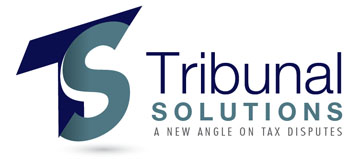Most people in the construction industry will be aware of the reason the construction industry rules were brought in in the first place around 1975. Many self-employed workers in the construction industry received their money and then disappeared without any tax been paid. The certification scheme and deduction at source were both brought in to try and avoid leakage of tax, which was quite considerable at that time.
There are a number of unfortunate repercussions resulting from those rules. One of the most significant is the potential withdrawal of gross payment status for regulatory mistakes. For many subcontractors the withdrawal of gross payment status, apart from resulting in cash flow difficulties from tax deductions, can also mean loss of work from contractors who are not prepared to deal with subcontractors who do not have gross payment status.
The main problem is that by the time liability to potential withdrawal of gross payment status has arisen it is usually not possible to do anything to avoid the status being withdrawn. Let us remind ourselves of some of the main factors which can result in withdrawal of gross payment status:
HMRC regulations state:
You will fail the Scheduled Review if any of the following happens during the 12-month review period.
HMRC have received:
- your contractor monthly return (including a nil return) late on four or more occasions
- one of your contractor monthly returns more than 28 days late
- your CIS/PAYE deductions late on four or more occasions
- one of your payments of PAYE/CIS deductions more than 14 days late
- one payment of your Self Assessment tax more than 28 days late
- one payment of your Corporation Tax more than 28 days late or, at the date of the Review, you have still outstanding an overdue:
- employer's end of year return (form P35)
- Self Assessment return (Income or Corporation Tax)
- Payment of £100 or more.
Given the severity of the above sanctions one would have thought that the rules would be fully publicised in the main construction industry brochure. However the only reference in Booklet CIS 340 to gross payment status withdrawal says enigmatically:
“If a contractor fails to operate the scheme properly, we may cancel the contractor's own gross payment status if the contractor also operates as a subcontractor.”
Subcontractors may be forgiven for thinking that the withdrawal is related to failure to operate the scheme in a mechanistic sense rather than failure to comply with other liabilities or obligations only loosely linked to the CIS scheme (e.g. PAYE failures).
As I mentioned in my related document “tax tribunal tips” the following pleas are unlikely to affect the stony heart of the HMRC compliance officer whose priority is to collect tax lawfully due:
- It was only slightly late
- We won’t do it again
- We have procedures in place to make sure the error is not repeated
- We were short of cash at the time
- It will have a serious impact on the business
- Contractors will not work with us if we do not have gross payment status
- It’s not fair
- We were not aware of the compliance requirements
So, as you will see from the above, by the time the compliance visit comes round and errors are identified it is usually too late to do anything. In the light of this, what, if anything, can be done?
The first course of action if you find yourself in this unfortunate position is to launch an appeal against the withdrawal of the status. This will at least defer the withdrawal until such time as the appeal has been heard before the First Tier Tax Tribunal.
At the Tribunal it is important to have proper professional representation in order to maximise the chances of your appeal being successful. Few accountants have the detailed expertise required to deal with a tribunal appeal successfully.
The sorts of things an advocate will investigate are:
- Has HMRC issued the notices of withdrawal correctly
- Is HMRC factually correct in its findings?
- Did the contractor have Time to Pay arrangements in place for all or any of the periods?
- Did the contractor have a reasonable excuse for any of the failures (see my separate document on “reasonable excuse”)
- Has HMRC exercised its discretion over withdrawal in an appropriate way?
- Has the contractor had the opportunity to make representations to HMRC before withdrawal?
- Is the potential effect on the business particularly serious and can it be substantiated?
- Has HMRC taken all relevant factors into account?
Appeals against gross payment withdrawal are rarely successful. So the clear lesson to learn is to do your own compliance review before HMRC come along and do theirs.
As a footnote, the “blunt instrument” point is quite relevant to this area as CIS is now more regulated than other industry sectors, even ones where problems have been rife in the past.
Does it seem reasonable that a subcontractor can operate the CIS scheme in a model fashion but be driven out of business because they have paid over their CIS deductions 15 days late on one occasion? No – neither do I.
